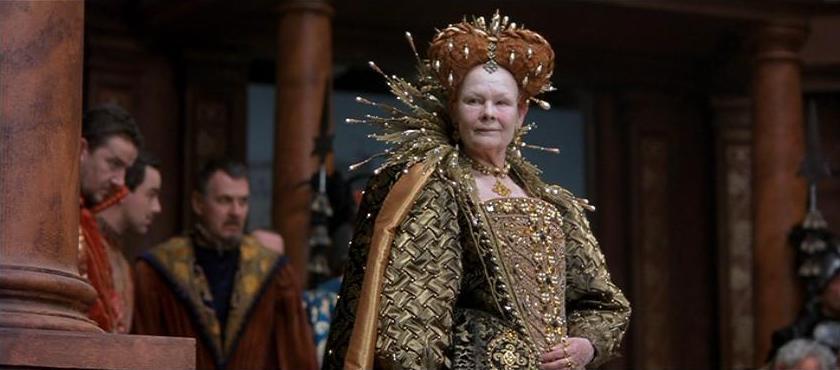
First Saw It:
January 1999, at the Sony Harvard Square in Cambridge, MA
 |
Winner '98: First Saw It: |
Shakespeare in Love January 1999, at the Sony Harvard Square in Cambridge, MA | ||
|---|---|---|---|---|
| Bridesmaids: | Elizabeth, Life Is Beautiful, Saving Private Ryan, The Thin Red Line | |||
| My Vote: | The Thin Red Line is one of the best movies the Academy ever nominated | |||
| Overlooked: | Velvet Goldmine, The Truman Show, Primary Colors |
 |
| Photo © 1998 Miramax Films |
| Academy Award Nominations and Winners: | |
| ★ | Best Picture |
| Best Director: John Madden | |
| ★ | Best Actress: Gwyneth Paltrow |
| ★ | Best Supporting Actress: Judi Dench |
| Best Supporting Actor: Geoffrey Rush | |
| ★ | Best Original Screenplay: Marc Norman & Tom Stoppard |
| Best Cinematography: Richard Greatrex | |
| ★ | Best Art Direction: Martin Childs; Jill Quertier |
| ★ | Best Costume Design: Sandy Powell |
| Best Film Editing: David Gamble | |
| ★ | Best Original Score (Musical/Comedy): Stephen Warbeck |
| Best Sound: Robin O'Donoghue, Dominic Lester, and Peter Glossop | |
| Best Makeup: Lisa Westcott & Veronica McAleer | |
| Golden Globe Nominations and Winners: | |
| ★ | Best Picture (Musical/Comedy) |
| Best Director: John Madden | |
| ★ | Best Actress (Musical/Comedy): Gwyneth Paltrow |
| Best Supporting Actress: Judi Dench | |
| Best Supporting Actor: Geoffrey Rush | |
| ★ | Best Screenplay: Marc Norman & Tom Stoppard |
| Other Awards: | |
| Berlin Film Festival: Silver Bear for Outstanding Single Achievement (Norman & Stoppard) | |
| Writers Guild of America: Best Original Screenplay | |
| Screen Actors Guild Awards: Best Actress (Paltrow); Best Ensemble | |
| New York Film Critics Circle: Best Screenplay | |
| National Society of Film Critics: Best Supporting Actress (Dench) | |
| British Academy Awards (BAFTAs): Best Picture; Best Supporting Actress (Dench); Best Film Editing | |
| Satellite Awards: Best Picture (Musical/Comedy) | |
| Permalink | Home | 1998 | ABC | Best Pics | Blog |